The pursuit of excellence in all that we do
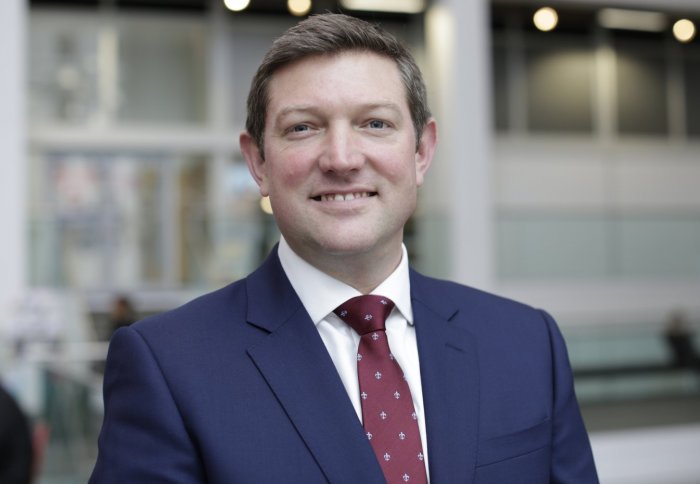
Imperial's Operational Excellence (OE) Programme seeks to deliver the efficient and effective professional services needed by a world class university
Imperial is rightly famous for the quality of its teaching and research – yet the College also has a talented and dedicated body of professional and support staff who are committed to improving the processes integral to supporting Imperial’s mission.
It is focused on fixing and improving processes so that they are simpler, more effective and more satisfying
– Professor James Stirling
Provost, Imperial College London
To help formalise this effort, the College launched the Operational Excellence (OE) Programme in April 2014, which seeks to deliver excellent, more efficient and effective professional support services – the high quality support needed by a world class university.
The programme aims to reduce duplicated effort and inefficient processes to better support the College’s mission while meeting the needs and expectations of staff and students.
Noting that Operational Excellence is a key part of the College’s strategy for 2015–2020, Provost Professor James Stirling says of the initiative: “It is focused on fixing and improving the processes all around us so that they are simpler, more effective and more satisfying for all the end users, both staff and students. The aim is to give our community more of two vitally important features of working at Imperial: time and resource. Most importantly it is a programme that should involve everyone across the organisation and will take a collaborative and collegial approach.”
Overseen by OE Programme Director Marc Gray, work is underway across a number of projects within the programme including: the Student Information Management Programme (SIMP); the Space Programme; the Building Maintenance Programme; Finance Transformation; HR eRecruitment and Rapid Improvement Projects within Library Services and the Faculty of Medicine Education Office.
We spoke with Programme Director Marc Gray and four members of staff who are using OE to support their work at Imperial
Marc Gray, Operational Excellence Programme Director
Marc joined the College in June 2015, having worked at BAE Systems, where he led complex change and improvement programmes across engineering, operations and support services businesses.
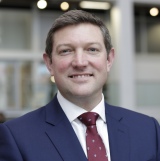 "The OE programme team is working with staff and student representatives to deliver on the enabling action within the College’s Strategy to provide professional support, consistent processes and appropriate technology for all of our staff and students. The approach we are taking is highly collaborative and involves working with staff to develop an OE capability that equips and empowers teams with the methods and tools to take action, driving improvement and change – pursuing excellence, in all that we do across the support services organisation.”
"The OE programme team is working with staff and student representatives to deliver on the enabling action within the College’s Strategy to provide professional support, consistent processes and appropriate technology for all of our staff and students. The approach we are taking is highly collaborative and involves working with staff to develop an OE capability that equips and empowers teams with the methods and tools to take action, driving improvement and change – pursuing excellence, in all that we do across the support services organisation.”
John Crook, Head of Timetabling
John was recruited in June 2014 to a new role created to transform the College’s existing systems. Here he talks about his role and how he implements OE on the ground.
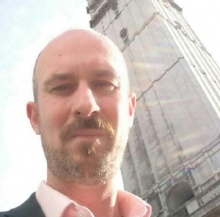 “Compared with other HE institutes I’ve worked at, Imperial has a very distributed approach, with the independence of the faculties and departments. This presents a particular challenge when you’re trying to standardise something as complex as timetabling.
“Compared with other HE institutes I’ve worked at, Imperial has a very distributed approach, with the independence of the faculties and departments. This presents a particular challenge when you’re trying to standardise something as complex as timetabling.
When I first joined there was no formal timetabling policy and limited opportunities for different departments to work together. Any kind of space sharing that did occur was informal and depended on existing relationships and fortuitous links between different departments. We’ve been trying to build up a framework that enables departments to work together more closely with a central database. The aim is to bring greater timetabling coordination across the Colleges Faculties and Departments.
We also carried out considerable consultation work with students to ascertain what they want and expect from their timetable as well as conducting a survey. The message was quite clear – students want an individual timetable that is dynamic (so if there’s a late change they want to know about it straight away), and a timetable that’s electronic and preferably accessible on their mobile devices.
We worked very closely with the ICT Applications Support team, and we delivered a product that is fully mobile, integrated with college email address, and can also pull through to Google calendars as well as other mobile calendar solutions. It suits a wide range of students.
Last academic year (2014/15) we rolled this out to 4000 students and then in October 2015 to 11,000. That represents an 89% coverage of all taught students and a significant step towards complete deployment.
To make sure that the transition happened as smoothly as possibly we worked with ICT to put on ‘roadshow’ style inductions, and also presented to the ICU Council. Feedback has been really positive so far and we’re looking to formalise that process and to scale up for full implementation.
There are still challenges ahead as we aim for 100% student coverage. We hope to eventually include postgraduates and in the near future undergraduate medical students, whose timetabling needs are particularly challenging with clinical placements and so on. Last, but not least, we'd also like to improve the quality of the product – for example introducing Facebook-style notifications for timetable changes removing the need for students to monitor changes themselves."
Doru Procopiu, Accounts Payable Manager
Working in the Finance Division, Doru leads a team of 20 staff. He has been involved in Operational Excellence through the Operational Management programme.
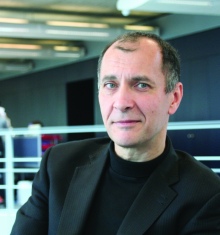 “I’ve been at Imperial for 27 years, as a Deputy and then Manager, and seen considerable change including a major restructuring two years ago and significant investment in technology and electronic invoicing.
“I’ve been at Imperial for 27 years, as a Deputy and then Manager, and seen considerable change including a major restructuring two years ago and significant investment in technology and electronic invoicing.
But with OE, we’ve never had such a concerted effort to introduce a framework of principles, and really look at our work and processes in a new light. Of course there have been attempts to benchmark our processes against other universities – but OE is different in that it is almost scientific in its approach, which is fitting for an institution such as Imperial.
I attended a two day course and we also had an OE expert come and work with us for 8 months. One of the questions he asked was: ‘Where are your documented processes? - Because if they aren’t documented you don’t in effect have any processes.’ Previously I had all the processes in my head, in emails and evolved through in meetings.
While there was scepticism from all quarters in the very beginning, after a few months I became a total convert. It’s beneficial for the business, for the managers and the team, because everything is out in the open and very clear. If you look around our open plan office you’ll see a big wall-to-wall whiteboard where we gather round on a Monday morning and record what was achieved the week previously, what the projected audits are and also establish what the focus of the week ahead might be. We invite people in the team to voice concerns or ideas. It’s a more effective way of running a team and keeping everyone motivated.
It also creates objective standards and everyone knows what’s expected of them. Previously we had one-to-one meetings - usually when things went wrong! But it was never structured. Now we’re taking a fresh approach, creating a skills matrix which helps to identify further training needs or development.
As a manager I’ve always seen myself as a very able problem solver, but OE has helped focus those skills. Using OE tools you can clearly identify problems and then work with the team to find the solution. No one has that single truth. Everyone comes up with something useful and you create a solution through collaboration and consensus.
Hopefully OE will soon migrate into all Support Services and academic departments, because to be Operationally Excellent, ideally you need everyone to adopt consistent processes and ways of working.
Janette Shiel is Student Services Manager
Working in the Faculty of Medicine Centre’s Faculty Education Office (FEO), Janette has been involved in OE through the Student Information Management Programme (SIMP) workstreams and now is co-leading an OE Rapid Improvement Event for FEO staff.
I started work at Charing Cross and Westminster Medical School a number of years before the big merger with Imperial and was among the first group of staff to move to South Kensington Campus – so I am quite accustomed to change.
I’ve always been involved in undergraduate medicine, largely being responsible for admission, early years of the curriculum, BSc pathways and welfare across all courses − but also fitness to practise and GMC issues. In recent years, with the challenging financial climate, the welfare side of things has become more prominent as the number of students requiring support has increased considerably.
I went on a three day OE course in July 2014 before the opportunity came up to work with the records work stream as part of the SIMP project − dedicating two days a week for for six months initially. We looked at the whole student programme from registration right through to degree transcripts. Working with staff from various departments across the College we reviewed many processes, some of which were simply not working for us, but more importantly our students.
With the interruption of studies procedure, currently we have to apply to registry and go through a litany of email loops just to enter a return date on the system so a student can come back to their studies. Hopefully what will happen with the new system is that departments will simply open a screen and input the information and that will set up the interruption of studies and automatically advise all those necessary in the process.
Prior to OE, we had started to review our communications with prospective students with a view to keeping them informed at the various different stages of the protracted application process. Working with OE helped to move this forward and we have found it has made a big difference with our students − this year’s cohort seem particularly well informed, friendly and happy with the course and School. This year we have introduced iPads across most years of our courses. We’re looking at completely moving away from paper – at the end of the day why does a student have to come to South Kensington just to get some paperwork when they can access the information on their iPad or request it?
The key thing now is that we keep moving forward, building on the work already completed. It’s important that support staff who are already engaged incorporate OE into new staff training, whilst continuing to train existing staff. There is much work still to do but if we push forward we can make a huge difference to not only to student experience but the College as a whole.
Ben Howitt, ICU Deputy President (Clubs and Societies)
Having recently finished the third year of an Msci in Mathematics, Ben is now working as an Officer Trustee at Imperial College Union.
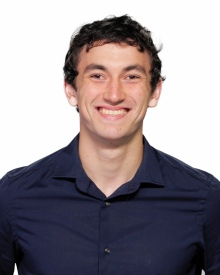 “I found out about Operational Excellence through my predecessor, who was involved the College’s OE Space Programme, and so when I came in as the incumbent it was something I was keen to continue with and support.
“I found out about Operational Excellence through my predecessor, who was involved the College’s OE Space Programme, and so when I came in as the incumbent it was something I was keen to continue with and support.
I attended a three day training course, which lays the groundwork and crucially brings you into a network of people with the same training and ways of working.
Primarily, it gives you access to a certain set of ‘tools’ or ‘processes’ which inform the way you work through problems. Members of the college at all levels have undertaken the training, which is a good way of opening up communication between different departments, central services staff and students – and good way to bring in stakeholders from across the college when necessary as well. Through this, you also benefit from a range of perspectives given that there are people from a variety of backgrounds who have participated.
Something that I hope students might be noticing before the end of the year is the change in approach to room bookings for students. We’ve just reached the end of an audit on College Space, and we’ll be spending the next few months doing some 'Voice Of’ work with students, clubs, and departments to hammer out the pressures around finding space to do things as a student group, academic or otherwise!. What we’re aiming to do is make the process more user-friendly for the person booking the room, whereas previous work has concentrated solely on the pressures on building managers and timetablers.
Through my role as Deputy President I have gained fresh perspectives about how to work with staff and students, applying the language and structures learnt through OE. With reference to the longer term benefits of implementing the programme, I think it will feed into a more gradual culture change, encouraging less bureaucracy and more communication between different facets of the College.
Operational Excellence certainly feels 'student focused'; it feels like people are working hard to try and put the ‘end user’ first and include the student voice in College-wide decisions.”
Chris Banks, Director of Library Services
Joining the College in September 2013, Chris has worked with many change programmes throughout her extensive career and now champions the Operations Excellence Rapid Improvement Programme at Imperial.
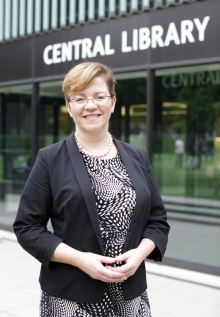 “In the Library Services, we really pride ourselves on our user experience. We’re clearly not doing too badly as we regularly get NSS scores in the region of 96% satisfaction − but behind the scenes there are a lot of people doing a lot of things and there are increasing demands on them, the nature of which are constantly evolving. So we need to make sure we are doing things as efficiently as possible.
“In the Library Services, we really pride ourselves on our user experience. We’re clearly not doing too badly as we regularly get NSS scores in the region of 96% satisfaction − but behind the scenes there are a lot of people doing a lot of things and there are increasing demands on them, the nature of which are constantly evolving. So we need to make sure we are doing things as efficiently as possible.
When I arrived at Imperial, Library Services had just implemented a new library management system, which is essentially a piece of software that manages all our licenced content, books, purchasing and catalogue records. Think of it as a warehousing tool in that it manages the locations and movements of stock, as well as entitlements to access to electronic resources.
What hadn’t been done, however, was any workflow analysis – so essentially we had a legacy workflow operating within a next generation system. As I went around the different campuses to get to know library staff I found out that some of the processes were taking five times as long in the new system as they were in the old system and the staff were frustrated as a result.
So we started by doing some retrospective workflow analysis as part of the Operational Excellence Rapid Improvement Programme.
What we are particularly focusing on are processes that go across teams or departments. So for example we ran an improvement exercise between Library Services and Finance to look at all the process involved in paying invoices. Our current, fifth Rapid Improvement Exercise is looking at our subscriptions to around 85,000 journals. At the moment, they all go through exactly the same renewal process but we’ve found that there are some journals that we are always going to buy because the academics need them – so the question is do we need to subject these to all the same processes when we know the answer at the end is still going to be: ‘buy it’?
What I most like about the OE approach is that it involves the staff who actually do the job − it’s not me as a Director saying: ‘right, I want you to make 20% efficiency savings here,’ or presuming I know exactly what goes on, therefore I know what the solutions are. The staff work together to improve the processes, and because they have done so, embedding those changes is likely to be much more successful.
What I found myself having to emphasise in the early days, was that basically it is ok to challenge those processes – I’m expecting that, and I want to legitimise not only peer-to peer challenge but upward challenge too, including to me as Director. If there is a local policy or practice in place that might be thought unnecessary or adding waste or inefficiency to a process then staff are empowered to dispense with it. This means I’m not involved in the detail of the project group work so staff don’t feel constrained!
It’s not about finding fault it is about improving processes and workflows and ultimately a better service for the end user: During the OE and Rapid Improvement process staff use a toolkit that gives them a language and a way in which to ask questions to enable them to uncover an issue in the first place, then to start probing and finally finding solutions."
Make OE work for you
For more information about the programme, visit the Operational Excellence webpage. Or if you have a process that you think would benefit from an OE approach, please get in touch at excellence@imperial.ac.uk
Article text (excluding photos or graphics) © Imperial College London.
Photos and graphics subject to third party copyright used with permission or © Imperial College London.
Reporter
Andrew Czyzewski
Communications Division